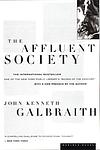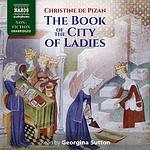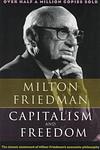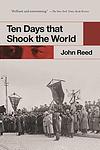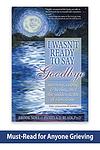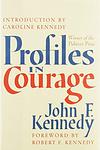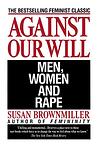The Greatest American, French "Nonfiction, Political" Books of All Time
Click to learn how this list is calculated.
This list represents a comprehensive and trusted collection of the greatest books. Developed through a specialized algorithm, it brings together 305 'best of' book lists to form a definitive guide to the world's most acclaimed books. For those interested in how these books are chosen, additional details can be found on the rankings page.
Genres
The "Political" category of books encompasses works that explore the theory, practice, and history of government and politics. These books may cover topics such as political ideologies, political systems, political institutions, political movements, and political leaders. They may also examine the relationship between politics and other areas of society, such as economics, culture, and international relations. Political books can be both informative and thought-provoking, offering readers insights into the complexities of the political world and the challenges of governing in a democratic society.
Countries
Date Range
Reading Statistics
Click the button below to see how many of these books you've read!
Download
If you're interested in downloading this list as a CSV file for use in a spreadsheet application, you can easily do so by clicking the button below. Please note that to ensure a manageable file size and faster download, the CSV will include details for only the first 500 books.
Download-
1. The Second Sex by Simone de Beauvoir
This influential work explores the treatment and perception of women throughout history, arguing that women have been repressed and defined only in relation to men. The author presents a detailed analysis of women's roles in society, family, work, and in the creation of their own identities. She discusses the concept of 'the other' and how this has been used to suppress women, while also examining the biological, psychological, and societal impacts of this oppression. The book is a seminal text in feminist theory, challenging traditional notions of femininity and calling for equality and freedom for women.
The 130th Greatest Book of All Time -
2. Democracy in America by Alexis de Tocqueville
This influential book offers an in-depth analysis of the strengths and weaknesses of 19th century American democracy. The author, a French political thinker, provides a detailed examination of the democratic process and its impact on society, politics, and the economy. The work highlights the importance of civil society, local institutions, and the spirit of equality in ensuring the stability of democracy. It also delves into the dangers of majority tyranny, the potential for democratic despotism, and the critical role of religion and morality in sustaining a democratic nation.
The 239th Greatest Book of All Time -
3. The Affluent Society by John Kenneth Galbraith
"The Affluent Society" is a socio-economic critique that challenges the conventional wisdom of the time that economic growth leads to public wealth. The author argues that in reality, the increasing wealth of the United States has led to greater private affluence but public squalor due to inadequate investment in public goods and services. He proposes that society should strive for sustainable development rather than unlimited material advancement. The book has been influential in economic thought, particularly in the areas of public policy and consumer behavior.
The 423rd Greatest Book of All Time -
4. The Souls of Black Folk by W. E. B. Du Bois
This seminal work is a collection of essays that explores the history and condition of African Americans at the turn of the 20th century. It delves into the issues of race, class, and the socio-economic realities faced by black people post-emancipation. The author employs a combination of history, sociology, and personal narrative to present a powerful critique of American society, highlighting the struggle for civil rights, the importance of black spirituals, and the concept of "double consciousness" - the idea of viewing oneself through the lens of a society that sees you as inferior.
The 481st Greatest Book of All Time -
5. The Social Contract by Jean-Jacques Rousseau
"The Social Contract" is a philosophical work that discusses the concepts of sovereignty and the social contract. The author argues that all men are born free, but everywhere they are in chains, suggesting that society and its rules are a form of enslavement. However, he also posits that a social contract, where individuals come together to form a collective or a society, is necessary for the preservation of their freedom. This contract allows for the creation of a sovereign that is made up of the collective and expresses the general will, which is always right and tends towards the public utility.
The 533rd Greatest Book of All Time -
6. All the President's Men by Bob Woodward, Carl Bernstein
"All the President's Men" is a non-fiction book that details the investigative journalism conducted by two reporters who uncover the details of the Watergate scandal that led to President Nixon's resignation. The book provides a detailed account of the reporters' struggles to uncover the truth, the obstacles they faced, their persistence, and the ultimate revelation of a political scandal that shook the United States.
The 615th Greatest Book of All Time -
7. The Death and Life of Great American Cities by Jane Jacobs
This book is a critique of 1950s urban planning policy, which it holds responsible for the decline of many city neighborhoods in the United States. The author argues that modernist urban planning rejects the city, because it rejects human beings living in a community characterized by layered complexity and seeming chaos. The book introduces groundbreaking ideas about how cities function, evolve and fail, providing a new perspective on the essentials of vibrant city life. The author also provides concrete examples of the unexpected consequences of urban renewal.
The 650th Greatest Book of All Time -
8. The Book of the City of Ladies by Christine De Pizan
"The Book of the City of Ladies" is a classical work in which the author, through allegorical characters, builds an imaginary city for women to illustrate their significant contributions to society. The book is a defense of women, arguing against the popular notion of the time that women were inferior to men. It showcases the author's deep knowledge of the past, referencing numerous notable women from history and mythology, emphasizing their virtues, intelligence, and moral fiber.
The 700th Greatest Book of All Time -
9. The Mismeasure of Man by Stephen Jay Gould
The book is a critical analysis of the history of scientific racism and biological determinism, the belief that social and economic differences among human races, sexes, and classes are inheritable, inevitable, and natural. It challenges the idea that intelligence can be measured accurately and placed in a single, linear scale. The author refutes the arguments of those who support these theories, arguing that they are based on flawed methodologies, biased data, and unverifiable assumptions. Instead, he proposes that intelligence is multifaceted and cannot be quantified simplistically.
The 812th Greatest Book of All Time -
10. The Power Broker by Robert Caro
This book is a biography of Robert Moses, a powerful figure in New York City and state politics, who wielded immense influence over the urban development of the area in the mid-20th century. Despite never holding elected office, Moses was responsible for the creation of numerous parks, highways, bridges, and public works throughout the city and state. The book delves into the methods Moses used to achieve and maintain his power, his impact on the city, and the controversial legacy he left behind.
The 814th Greatest Book of All Time -
11. Notes of a Native Son by James Baldwin
This book is a collection of essays that vividly capture the author's life in Harlem, his travels in Europe, and his views on everything from the sweet music of black church revivals to the biting prejudice of the 'then' contemporary world. It's an exploration of racial, sexual, and class distinctions in both Western societies and the American society. The author's reflections on his experiences as a black man in white America are profoundly insightful and continue to resonate today.
The 816th Greatest Book of All Time -
12. Capitalism and Freedom by Milton Friedman
This book explores the role of competitive capitalism - the organization of the bulk of economic activity through private enterprise operating in a free market - as both a device for achieving economic freedom and a necessary condition for political freedom. The author further examines how freedom could be preserved in a society where the roles and importance of government are ever expanding, and presents his view on topics such as monetary policy, fiscal policy, education, discrimination, and the alleviation of poverty.
The 895th Greatest Book of All Time -
13. The Liberal Imagination by Lionel Trilling
"The Liberal Imagination" is a collection of essays that scrutinize and challenge the ideas, politics, and cultural norms of liberal society. The author argues that liberalism often simplifies complex issues and overlooks the inherent contradictions and conflicts in human life. Using literature as a tool, he delves into the nuances of these issues and encourages readers to engage in critical thinking and self-examination. The book is a profound exploration of the strengths and weaknesses of liberal thought and its impact on society.
The 981st Greatest Book of All Time -
14. Life on the Mississippi by Mark Twain
This book is a semi-autobiographical account of the author's experiences as a steamboat pilot on the Mississippi River before the American Civil War. It provides a detailed and humorous depiction of life and society along the river, including the author's own journey from an eager young apprentice to a seasoned riverboat pilot. The book also includes a travelogue of a journey down the Mississippi River much later in life, offering a look at the dramatic changes brought about by industrialization and the Civil War.
The 1032nd Greatest Book of All Time -
15. Civil Disobedience by Henry David Thoreau
The book is a seminal work on the philosophy of non-violent resistance, advocating for individual freedom and the refusal to obey unjust laws. The author argues that individuals have a duty to prioritize their conscience over the dictates of laws and that governments are inherently prone to corruption and should not command absolute allegiance from their citizens. The book has greatly influenced many nonviolent resistance movements around the world, including those led by Gandhi and Martin Luther King Jr.
The 1036th Greatest Book of All Time -
16. Discipline and Punish by Michel Foucault
This book delves into the historical evolution of the penal system, examining how Western societies have transitioned from a regime of violent, public physical punishment to a more subtle form of surveillance and control. It introduces the concept of the "panopticon," a metaphor for modern disciplinary societies that exercise power through observation and normalization rather than through overt physical coercion. The work explores the relationship between power, knowledge, and social control, arguing that disciplinary mechanisms are embedded in various institutions, such as schools, hospitals, and prisons, shaping individuals and maintaining order in society.
The 1064th Greatest Book of All Time -
17. Ten Days That Shook the World by John Reed
This book provides a firsthand account of the Russian Revolution in 1917, specifically focusing on the ten days during which the Bolsheviks seized power. The author, an American journalist, presents a detailed chronicle of the events, people, and emotions during this tumultuous period. His narrative is filled with vivid descriptions and passionate portrayals of the revolutionaries, offering an intimate look into this significant historical event.
The 1071st Greatest Book of All Time -
18. The American Way of Death by Jessica Mitford
This book is a critical examination of the funeral industry in the United States. The author explores the various ways in which the industry exploits the grief and vulnerability of the bereaved to upsell expensive services and merchandise, often with little regard for the actual needs or desires of the deceased or their loved ones. She also delves into the cultural and societal norms around death and burial in America, questioning their origins and the extent to which they are perpetuated by the industry for profit.
The 1072nd Greatest Book of All Time -
19. A Theory of Justice by John Rawls
This book presents a seminal work in modern political philosophy, where the author proposes a model of justice that, despite being egalitarian, respects individual rights. The author's "veil of ignorance" thought experiment, which suggests designing society from an original position where no one knows their future place in society, has been particularly influential. The author argues that this would lead to a system where each individual is assured basic liberties and socio-economic inequalities are only allowed if they benefit the least advantaged members of society.
The 1129th Greatest Book of All Time -
20. The Fire Next Time by James Baldwin
This book is a powerful exploration of race relations in America in the early 1960s. The author presents his experiences and observations in the form of two essays. The first is a letter to his 14-year-old nephew, discussing the role of race in American history. The second essay takes a broader look at the civil rights movement and the author's own experiences with religion and identity. Throughout, the author presents a passionate plea for the recognition of the humanity and dignity of all people, regardless of race.
The 1143rd Greatest Book of All Time -
21. The Theory of the Leisure Class by Thorstein Veblen
This book is a socio-economic critique of American consumerism and the upper class, written in the late 19th century. The author argues that the wealthy engage in conspicuous consumption and leisure to display their wealth and maintain their social status. He introduces the concept of "pecuniary emulation," suggesting that the lower classes imitate the consumption patterns of those above them, leading to a wasteful and inefficient economy. The book is a seminal work in the field of economics, providing a satirical yet insightful look into the behavior of the affluent.
The 1193rd Greatest Book of All Time -
22. Profiles in Courage by John F. Kennedy
This book highlights the stories of eight U.S. Senators who displayed immense courage and integrity in the face of pressure from their parties and constituents. The author examines their acts of bravery and principle, often leading to severe consequences in their personal and political lives. The book aims to inspire readers with historical examples of political courage, emphasizing the importance of individual action for the collective good.
The 1310th Greatest Book of All Time -
23. Against Our Will by Susan Brownmiller
This book is a comprehensive study of rape throughout history, examining its use as a tool of domination and control, and its societal implications. The author argues that rape is not about sex but about power, and that it is a pervasive issue deeply ingrained in society's patriarchal structures. The book also explores the legal and cultural attitudes towards rape, highlighting the need for change in societal perception and response to this crime.
The 1335th Greatest Book of All Time -
24. Émile by Jean-Jacques Rousseau
The book in question is a seminal work in the field of education and philosophy, presenting a comprehensive treatise on the nature of man and the importance of education tailored to the individual's developmental stages. The author argues for a system of education that allows for the natural development of a child's abilities and senses, advocating for learning through experience rather than traditional academic instruction. The narrative follows the growth of a fictional boy, illustrating the author's educational philosophy through his upbringing, which emphasizes moral and emotional development alongside intellectual growth. The work challenges conventional notions of education and has had a profound impact on modern educational theory.
The 1359th Greatest Book of All Time -
25. The City in History by Lewis Mumford
"The City in History" explores the development of urban life over the course of history. The author provides a comprehensive evaluation of cities from ancient times to the modern era, examining their architectural, social, political, economic, and cultural aspects. The book also offers a critique of the urbanization process, highlighting its negative impact on human life and the environment, while advocating for a human-centered approach to urban planning.
The 1388th Greatest Book of All Time
Reading Statistics
Click the button below to see how many of these books you've read!
Download
If you're interested in downloading this list as a CSV file for use in a spreadsheet application, you can easily do so by clicking the button below. Please note that to ensure a manageable file size and faster download, the CSV will include details for only the first 500 books.
Download

